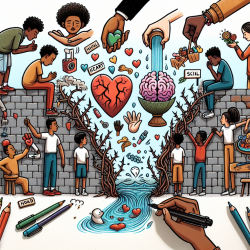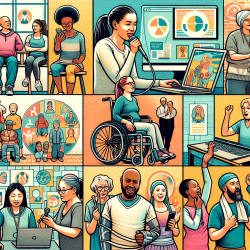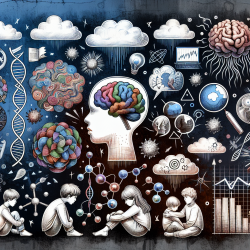The impact of systemic racism has been a significant topic in national discourse, particularly concerning its effects on Black youth. As practitioners working with this demographic, it is crucial to understand how racial discrimination affects their emotional well-being and socio-emotional development. A recent study titled "Discriminatory Experiences Among Black Youth: How Encounters and Expectations Explain Emotional Well-Being" provides valuable insights into these issues.
The Study's Findings
This study assessed whether experienced racial discrimination was associated with higher levels of internalizing problems such as anxiety and depression, as well as lower levels of socio-emotional development, including emotion regulation and prosocial behavior. It also explored the impact of anticipated discrimination on these outcomes. The research involved 1,435 Black youth from eight schools across three communities.
The findings revealed that both experienced and anticipated racial discrimination were linked to increased internalizing problems and decreased socio-emotional development. Notably, anticipated discrimination often accounted for more variance in these outcomes than experienced discrimination. These results underscore the multifaceted influence of racial discrimination on Black youth's well-being.
Implications for Practitioners
For practitioners, understanding these dynamics is essential for effectively supporting Black youth. Here are some ways to incorporate these findings into practice:
- Recognize the Signs: Be vigilant in identifying signs of anxiety, depression, and difficulties in emotion regulation among Black youth. Understanding the role of racial discrimination in these issues can guide more accurate assessments.
- Create Safe Spaces: Establish environments where youth feel safe to express their experiences with discrimination. Providing a supportive space can help them process these experiences constructively.
- Promote Prosocial Behavior: Encourage activities that foster prosocial behavior and community engagement. These can serve as protective factors against the negative impacts of discrimination.
- Advocate for Systemic Change: Work towards addressing systemic racism within educational and community settings. Advocacy can involve policy changes, cultural competence training for staff, and inclusive curricula.
- Engage in Continuous Learning: Stay informed about the latest research on racial discrimination and its effects on youth. This knowledge will enhance your ability to support affected individuals effectively.
The Role of Community Prevention Systems
The study highlights the importance of integrating community prevention systems to address these issues comprehensively. Programs like Evidence2Success® bring together stakeholders to implement effective interventions based on youth-reported risk factors. Such frameworks can be instrumental in mitigating the adverse effects of racial discrimination on mental health and socio-emotional development.
Encouraging Further Research
This study opens avenues for further research into how different forms of discrimination impact various aspects of well-being among Black youth. Practitioners are encouraged to engage with ongoing studies and contribute to this growing body of knowledge. By doing so, they can enhance their practice and advocate for systemic changes that promote equity and inclusion.
To read the original research paper, please follow this link: Discriminatory Experiences Among Black Youth: How Encounters and Expectations Explain Emotional Well-Being.










